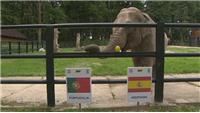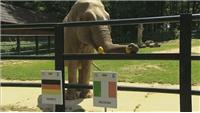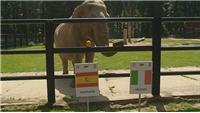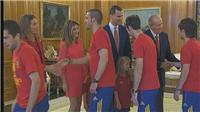
The tournament's new name – which replaced European Nations' Cup – was accompanied by a new format: the qualification phase now comprised qualifying groups instead of two-legged knockout ties, and led to a quarter-final round featuring the eight group winners. The finals themselves, as with their predecessors in 1960 and 1964, consisted of semi-finals, final and third-place play-off.

Only Malta and Iceland opted out of the competition, while West Germany finally made their debut, with a certain Gerd Müller in their ranks. Despite his emergence, however, the Germans finished second in their section behind Yugoslavia, who advanced to the quarter-finals.
The British Home Championship doubled up as another qualifying group, which England eventually won. After suffering a famous 3-2 defeat by Scotland at Wembley, the world champions graduated by holding their old foes to a 1-1 draw in front of 130,711 spectators at Hampden Park, the biggest crowd for any UEFA European Championship match.
Elsewhere, there were surprises as Eusébio's Portugal came second to Bulgaria and talented Belgium finished runners-up to France. European titleholders Spain experienced no such trouble as they set up an intriguing quarter-final with England. Here, Alf Ramsey's charges triumphed 1-0 at home and 2-1 in Madrid to open the doors to the final tournament.

The semi-final quartet destined for Italy's three venues of Florence, Naples and Rome, was completed by 1960 finalists Yugoslavia, the Soviet Union and Ferruccio Valcareggi's new-look Italy. Pelted with rotten tomatoes after their 1966 World Cup loss to North Korea, the Azzurri were determined to regain their fans' respect, not least because they were competing on home soil.

As it happened, Italy's progress came down to a coin toss when their semi-final with the USSR ended goalless after 120 minutes. The referee applied the correct procedure and the Azzurri were promptly awarded a Rome showdown with Yugoslavia, who had Dragan Džajić's goal to thank for overcoming ten-man England 1-0. Alan Mullery had become the first senior England player to be sent off in that game and was sidelined as his colleagues went on to take third place.
Come the final at Rome's Stadio Olimpico, Italy fell behind to a Džajić effort after 39 minutes and looked to be heading for defeat. "To be honest, we didn't deserve to draw," admits goalkeeper Dino Zoff now, but Angelo Domenghini struck with ten minutes remaining to force a replay two days later.
Blessed with the stronger squad, Valcareggi brought in Sandro Mazzola and Luigi Riva, and the latter shared scoring duties with Pietro Anastasi to finally see off Yugoslavia 2-0. "We definitely deserved to win that game," adds Zoff. "The memories are fresh even now."
Hot News
- Funny Balotelli!
- Spanish fans celebrate Euro Cup win
- That's German WAGS!
- The sexy female fans in Euro 2012
- Euro 2012: Spain fans celebrate victory
- Spain vs Italy in clash of the Euro WAGs
- Euro 2012 Final - Spain 4 : 0 Italy, Part 2
- Germany knocked out by Italy
- Natalia Siwiec blasts Sol and the BBC
- Coleen Rooney reveals her bikini body secrets
- Italy's fans celebrated wildly
- Euro 2012 Final - Spain 4 : 0 Italy, Part 1
| Rank | Team | W/D/L | Pts |
|---|
Cities & Stadiums
The Top 3 Teams of Previous Tournaments
| Year | Winners | Runner-up | Third place |
|---|---|---|---|
| 2008 | Spain | Germany | Russia / Turkey |
| 2004 | Greece | Portugal | Netherlands / Czech Republic |
| 2000 | France | Italy | Netherlands / Portugal |
| 1996 | Germany | Czech Republic | France / England |
| 1992 | Denmark | Germany | Netherlands / Sweden |
| 1988 | Netherlands | Soviet Union | Italy / West Germany |
| 1984 | France | Spain | Denmark / Portugal |
| 1980 | West Germany | Belgium | Czechoslovakia |
| 1976 | Czechoslovakia | West Germany | Netherlands |
| 1972 | West Germany | Soviet Union | Belgium |
| 1968 | Italy | Yugoslavia | England |
| 1964 | Spain | Soviet Union | Hungary |
| 1960 | Soviet Union | Yugoslavia | Czechoslovakia |



